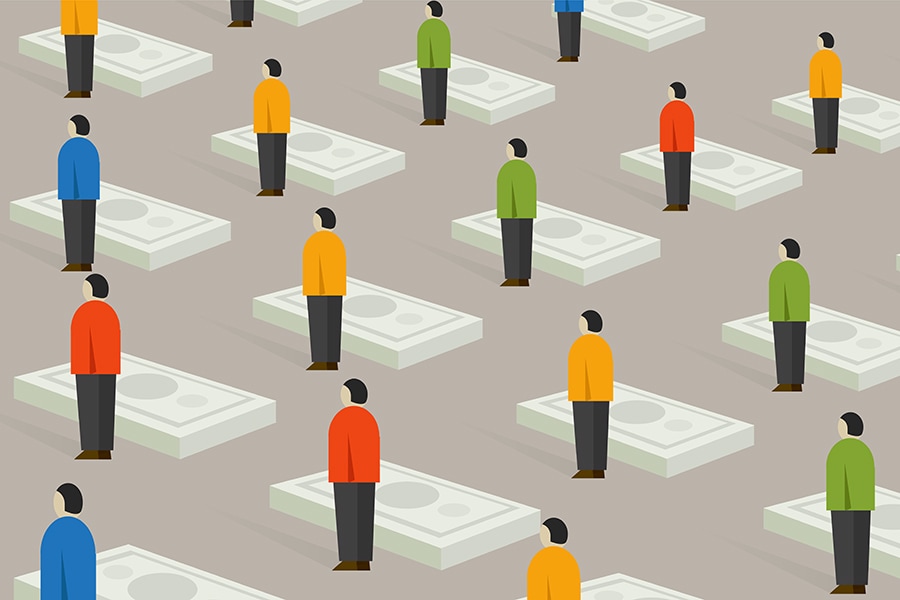
Universal basic wealth is a better option to protect vulnerable poor
Today's wage slavery needs to be addressed with an option that gives citizens of the country ownership over some substantial property or wealth on which they can build their lives as they please
 A package of basic wealth can protect people, especially the poorest. Image: Shutterstock
A package of basic wealth can protect people, especially the poorest. Image: Shutterstock
Do we need to work to live well? If you look at the tiny sliver of the top 0.001 percent—their families often do not do market labour. They live off the rents they raise from their accumulated capital. A few of them may be self-made, but the larger mass of the wealthy are the inherited folks. They are the landlords. If we do not question the inherited entitlement of the rich—the Trumps, for example—why do we question such a desire of the poor?
The coronavirus pandemic has taught us that some occupations are more essential than others. We need the farmers, the sanitation workers, the doctors and nurses, more than the landlords at this moment. Yet, the landlords and the rent-seekers hold significantly more wealth than the essential workers who live vulnerable lives—paycheck to paycheck. There is something sick about such a system, where the classes that do not work preach the gospel of work to those who do. "The poor are lazy," they say, while they live off rents.
People have identified and stated this irony, and the response to this irony has varied. Marx advocated for communism—a proletariat revolution against the capitalist rent-seekers to socialise the means of production. But by collectivising ownership, communism (Marxist-Leninism) made states overbearingly autocratic, directly leading to its decline.
We have learnt from the past that the best response to the above irony is not communism. Over the last decade, new ideas have emerged to tackle this problem of unfair inequality. The first idea is that community support is an essential pillar of the social support modern economies need. While communities matter and their importance can not be undermined, yet they can help the vulnerable only in limited ways. In countries like India, community matters probably too much. While a majority of Indians are unable to raise emergency funds during a crisis, among those who can raise such funds almost half of them get it from their family and friends. The problem is that poor people have poor communities and rich people have rich communities.
The second idea is of universal basic income, which posits everybody should get a monthly check from the government that is large enough for them to live just fine—whether or not they work. This idea seems to be a closer response to the question—does a person have a right to live well even if they refuse to labour?
[This article has been published with permission from IIM Bangalore. www.iimb.ac.in Views expressed are personal.]







